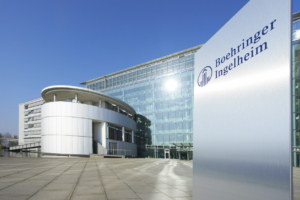
Epigenetic drugs can increase tumour malignancy
Researchers at IRB Barcelona report that tumours may become more aggressive following treatment with drugs that inhibit epigenetic factors.
In Nature Cell Biology the team headed by Salvador Aznar Benitah and Fran Supek reported that genetic inactivation of histone H3 lysine 9 (H3K9) methyltransferase G9a altered the pattern and number of mutations that tumours accumulate. In mice with squamous skin carcinoma, inhibition of the methyltransferase in the epidermis triggered large genetic alterations, such as duplications and the loss of different regions of DNA stopping tumour growth initially.
"This finding would make you think that epigenetic factors are good therapeutic targets. But the genomic instability also brought about the appearance of mutated tumour cells, which eventually developed highly aggressive tumours, said Alexandra Avgustinova, first author of the study. Following a latency period, tumours in the knock-out mice showed an expanded cancer progenitor pool, pronounced genomic instability and frequent loss-of-function p53 mutations compared to wild-type counterparts.
The authors warn that special care should be taken regarding chromatin modifying drugs. We are not saying that this is going to happen in every case, but it is something that needs to be studied in greater depth before deciding whether drugs targeting epigenetic factors should be used in clinical practice or not, said Benitah, who heads the Stem Cell and Cancer Laboratory at IRB Barcelona.
A previous study headed by Christoph Plass at German Cancer Research Centre demonstrated that DNA methyltransferase blockers and histone deacetylase inhibitors (DNMTi and HDACi) were not specific but triggered the cryptic transcription from two-and-a-half thousands of treatment-induced non-annotated transcription starting points, so called TINATs of retroviral origin. According to Plass, TINAT transcription and translation resulted in a complete chaos in the tumour cells.
However, he believes this can be used to kill cancer cells, particularly when epigenetic therapy is given in combination with checkpoint inhibitors that unleash T killer cell activity against tumours. "As TINATs constitute of exons that are modified at their 5′-end due to their retroviral anchestry, the resulting frameshift mutations lead to the translation of peptides that are highly immunogenic. This could support T-cell responses", he told European Biotechnology.



 Boehringer Ingelheim
Boehringer Ingelheim Olga Yastremska, New Africa, freepik
Olga Yastremska, New Africa, freepik